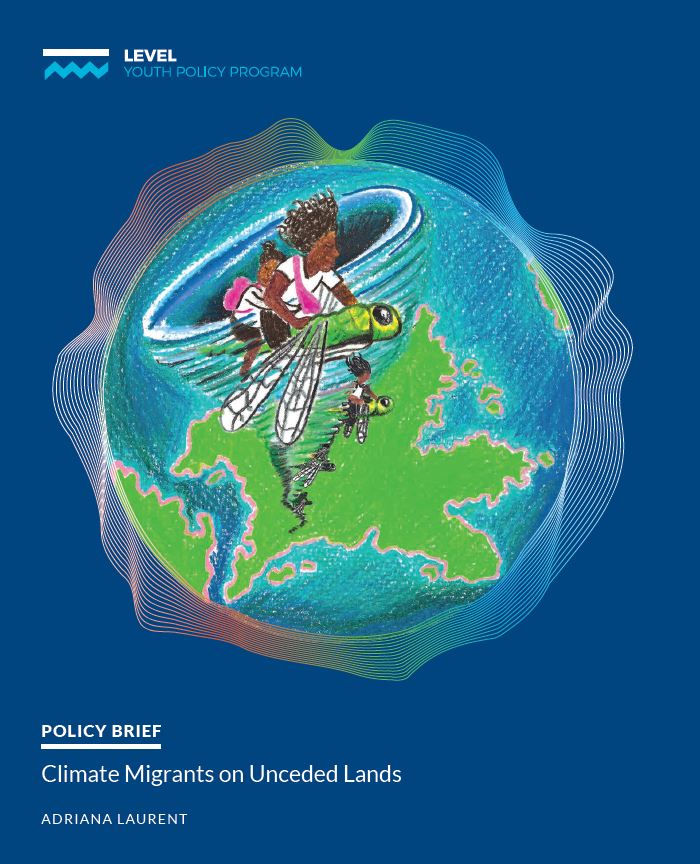The acceleration of climate change is a direct result of the systems of White-supremacy, colonialism, and capitalism that continue to exploit people and the planet (Park, 2015). Climate change is already threatening the lives of the most marginalized communities all over the world. It’s already becoming apparent that the impacts of climate change are displacing people and impacting migration patterns (Dwyer, 2020). Unfortunately, there is no international and legally binding recognition for climate migration. Although this is an issue that has garnered some international attention from the United Nations Humans Rights Committee, most notably the case in New Zealand, the world is still years away from creating legal protection for climate migrants (UN landmark case for people displaced by climate change, 2020). Nations like Canada, who have been notable contributors to the acceleration of climate change, have an obligation to recognize and protect climate migrants through their existing migration pathways. Canada is going to launch the new Municipal Nominee Program (MNP) that mirrors their existing and very successful Provincial Nominee Program (PNP) (Harris, 2020). The MNP will allow for municipalities to nominate economic migrants based on a set of criteria. In order to accommodate climate migrants, who currently have no legal definition, the Minister of Immigration and Refugees can create a new migratory class, specifically for climate migrants, under Section 25.2 of the Immigration and Refugee Protection Act (IRPA), and under humanitarian and compassionate considerations from foreign nationals (Branch, 2020). A municipality like Vancouver, which has declared a climate emergency, is one of the major cities immigrants move to, and is an ideal candidate for a trial run of this program. It’s crucial that is done with the Host Nations and in a way that upholds Indigenous sovereignty. Vancouver has also passed framework to become a “City of Reconciliation,” and any work done to implement policy around climate migrants must be done in collaboration with Indigenous communities who will be impacted by this legislation. Climate migrants must be protected from the impacts of climate change through both sudden-onset disasters and slow-onset disasters. The connection between climate change and migration is complex and nuanced. As time goes by, and the impacts of climate change become more detrimental, this issue will become more pressing. Global North nations like Canada have the resources and the responsibility to alter their migration pathways to accommodate climate migrants and refugees. Migration is a form of climate adaptation and the world needs to begin to prepare for it in a way that centers the humanity and dignity of communities who are impacted by it.
Climate Migrants on Unceded Lands

About the Author:

Adriana Laurent
Adriana Laurent (she/her) is originally from Honduras, and is a queer, mixed race immigrant who is passionate about the intersections of climate change, race, gender and migration and has been organizing on these issues for 6 years at an institutional and grassroots level. This was also the topic of her policy paper when she was a YPP participant. Adriana was a co-founder and staff at the Climate Hub at UBC, was a consultant for the City of Vancouver on the scoping of their Climate Justice Charter, and she has also organized international mutual aid projects and grassroots youth climate and abolitionist organizing. She’s been involved with Vancouver Foundation through several grant adjudication processes, as a facilitator for the YPP programme and as a Consultant for the YPP alumni engagement. She worked as Digital Campaigner at Leadnow and an Equity and Inclusion Strategist at Bakau Consulting. She now works at the City of Vancouver as the Senior Social Planner in Climate, Equity and Reconciliation.
About the Author:

Adriana Laurent
Adriana Laurent (she/her) is originally from Honduras, and is a queer, mixed race immigrant who is passionate about the intersections of climate change, race, gender and migration and has been organizing on these issues for 6 years at an institutional and grassroots level. This was also the topic of her policy paper when she was a YPP participant. Adriana was a co-founder and staff at the Climate Hub at UBC, was a consultant for the City of Vancouver on the scoping of their Climate Justice Charter, and she has also organized international mutual aid projects and grassroots youth climate and abolitionist organizing. She’s been involved with Vancouver Foundation through several grant adjudication processes, as a facilitator for the YPP programme and as a Consultant for the YPP alumni engagement. She worked as Digital Campaigner at Leadnow and an Equity and Inclusion Strategist at Bakau Consulting. She now works at the City of Vancouver as the Senior Social Planner in Climate, Equity and Reconciliation.
